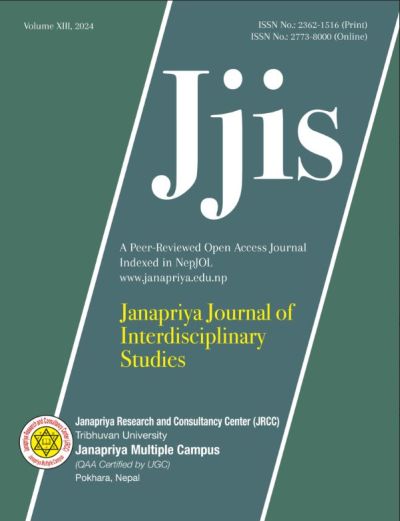Effectiveness of Health Insurance Program of Urban Health Promotion Center, Pokhara, Kaski
DOI:
https://doi.org/10.3126/jjis.v13i1.75523Keywords:
Health care coverage, health insurance, health scheme, quality health service, urban health promotionAbstract
Nepal Health Insurance Program (NHIP) has enrolled millions of individuals, but concerns remain for its utilization rates and the factors influencing them. The insurance program aims to fulfill the spirit of universal health coverage by increasing access to and utilization of necessary quality health services. Despite having high enrollment in the NHIP, there is also a high percentage of the dropout rate. Therefore, this study explores the effectiveness of the health insurance program in Nepal. The study applied the cross-sectional exploratory research design. 41 clients were taken conveniently from the Urban Health Promotion Centre (UHPC) who are enrolled in the insurance program. The primary data was collected by using a semi-structured interview schedule. The collected quantitative data variables were defined and entered into SPSS. Descriptive analysis was used to discuss the data, followed by analysis using frequency and percentage. During the study, 26.82 percent of the respondents were willing to drop out of the NHIP. The cause of willingness to drop out of the insurance program is difficulty in utilizing the services, the ignorance of insurers during the time of renewal, and family suggestions. The proportion of willingness to drop out of the insurance program is comparatively less than the Kaski and National rates; hence, it seems that the NHIP is going satisfactory.
Downloads
Downloads
Published
How to Cite
Issue
Section
License
Copyright (c) 2024 The Author(s)

This work is licensed under a Creative Commons Attribution-NonCommercial 4.0 International License.




